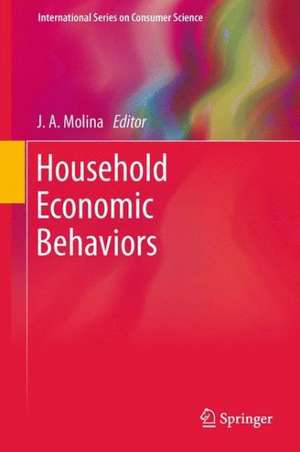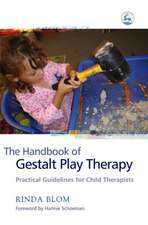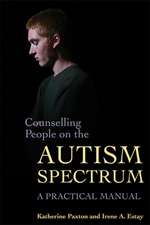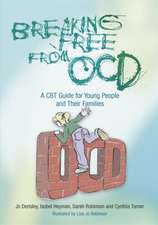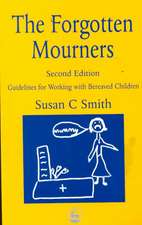Household Economic Behaviors: International Series on Consumer Science
Editat de J. A. Molinaen Limba Engleză Paperback – 25 oct 2013
| Toate formatele și edițiile | Preț | Express |
|---|---|---|
| Paperback (1) | 552.44 lei 39-44 zile | |
| Springer – 25 oct 2013 | 552.44 lei 39-44 zile | |
| Hardback (1) | 641.85 lei 6-8 săpt. | |
| Springer – 31 aug 2011 | 641.85 lei 6-8 săpt. |
Preț: 552.44 lei
Preț vechi: 690.54 lei
-20% Nou
Puncte Express: 829
Preț estimativ în valută:
105.72€ • 110.24$ • 87.86£
105.72€ • 110.24$ • 87.86£
Carte tipărită la comandă
Livrare economică 17-22 martie
Preluare comenzi: 021 569.72.76
Specificații
ISBN-13: 9781461429760
ISBN-10: 1461429765
Pagini: 200
Ilustrații: XII, 188 p.
Dimensiuni: 155 x 235 x 11 mm
Greutate: 0.29 kg
Ediția:2012
Editura: Springer
Colecția Springer
Seria International Series on Consumer Science
Locul publicării:New York, NY, United States
ISBN-10: 1461429765
Pagini: 200
Ilustrații: XII, 188 p.
Dimensiuni: 155 x 235 x 11 mm
Greutate: 0.29 kg
Ediția:2012
Editura: Springer
Colecția Springer
Seria International Series on Consumer Science
Locul publicării:New York, NY, United States
Public țintă
ResearchCuprins
Introduction.-Non-unitary Models of Household Behaviour: a Survey of the Literature.-Independent Individual Decision-makers in Household Models and the New Home Economics.-Household Time Use, Inequality and Taxation.-Revealed Preference Tests for Collective Household Behavior.-Collective Labour Supply of Native Dutch and Immigrant Households in the Netherlands.-The Effects of Marriage on Couples’ Allocation of Time: Some between Market and Non-market Hours.-Dads Matter? Or Is It Just their Money that Matters? Unpicking the Effects of Separation on Educational Outcomes.-Measuring the Transmission of Economic Shocks among the Household Members of the Same Extended Family
Notă biografică
Professor José Alberto Molina received his Ph. D. in Economics from the University of Zaragoza (Spain) in 1992. He joined IZA as a Research Fellow in September 2006. Currently, he is the Dean of the Faculty of Economics at the University of Zaragoza. He has been a Visiting Fellow at FEDEA (Madrid, Spain) and at Warwick University (UK). He is Associate Editor of Applied Economics, Applied Economics Letters, the International Journal of Consumer Studies and the Journal of Family and Economic Issues. His main research topic is household economic behavior and welfare, with particular interest in labor economics and intra-household allocation. Professor Molina is also working on projects related to efficient bargaining in families with children. His work has been published in the American Journal of Economics and Sociology, Applied Economics, Economics of Education Review, Empirical Economics, the Journal of Agricultural Economics, the Journal of Family and Economic Issues, the Journal of Policy Modeling, Research in Economics, Review of Economics of the Household, and Urban Studies, among others.
Textul de pe ultima copertă
For decades, the traditional model of household economic behavior assumed a nuclear family and a standardized structure. But recent seismic shifts in family composition (e.g., childless, cohabiting, blended) and in the ways family members shop, save, and work are bringing challenges to the unitary model and opening up new avenues for study.
In Household Economic Behaviors, a distinguished panel of researchers offers theoretical analysis and empirical findings that reflect the complex realities of contemporary family decision-making. Non-unitary alternatives featured include collective/cooperative, strategic/bargaining, and independent individual models. A variety of pertinent situations and comparative studies comes under discussion, such as intra-household bargaining, monetary versus non-monetary transfers within households, decision-making differences between immigrant and native families, and the impact of economic downturns. Chapter authors add to a diversifying knowledge base as they:
· Introduce and clarify non-unitary models of household behavior, including collective and strategic, with their policy implications.
· Discuss alternative independent individual models of the household.
· Review the current literature on household time use, inequality, and taxation.
· Examine revealed preference tests for collective household behavior.
· Compare collective labor supply of natives and immigrants.
· Explore the effects of marriage on couples’ allocation of time.
· Tackle the controversial question, “Do fathers matter—or just their money?”
· Consider the transmission of economic shocks among family members.
The innovative and timely perspectives inHousehold Economic Behaviors are especially instructive for researchers studying the economics of the family and social policy, as well as professors and students in family relations.
In Household Economic Behaviors, a distinguished panel of researchers offers theoretical analysis and empirical findings that reflect the complex realities of contemporary family decision-making. Non-unitary alternatives featured include collective/cooperative, strategic/bargaining, and independent individual models. A variety of pertinent situations and comparative studies comes under discussion, such as intra-household bargaining, monetary versus non-monetary transfers within households, decision-making differences between immigrant and native families, and the impact of economic downturns. Chapter authors add to a diversifying knowledge base as they:
· Introduce and clarify non-unitary models of household behavior, including collective and strategic, with their policy implications.
· Discuss alternative independent individual models of the household.
· Review the current literature on household time use, inequality, and taxation.
· Examine revealed preference tests for collective household behavior.
· Compare collective labor supply of natives and immigrants.
· Explore the effects of marriage on couples’ allocation of time.
· Tackle the controversial question, “Do fathers matter—or just their money?”
· Consider the transmission of economic shocks among family members.
The innovative and timely perspectives inHousehold Economic Behaviors are especially instructive for researchers studying the economics of the family and social policy, as well as professors and students in family relations.
Caracteristici
presents a new intra-household perspective focused on theoretical considerations and empirical data covers a broad range of intra-household behaviors contributions are designed to be accessible and have global reach uses rigorous economic methodologies Includes supplementary material: sn.pub/extras
